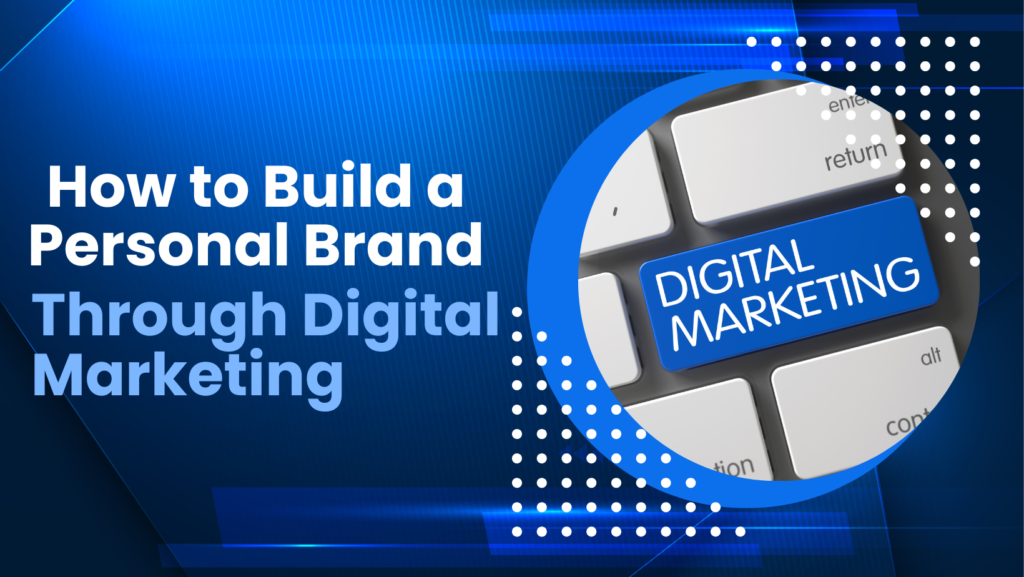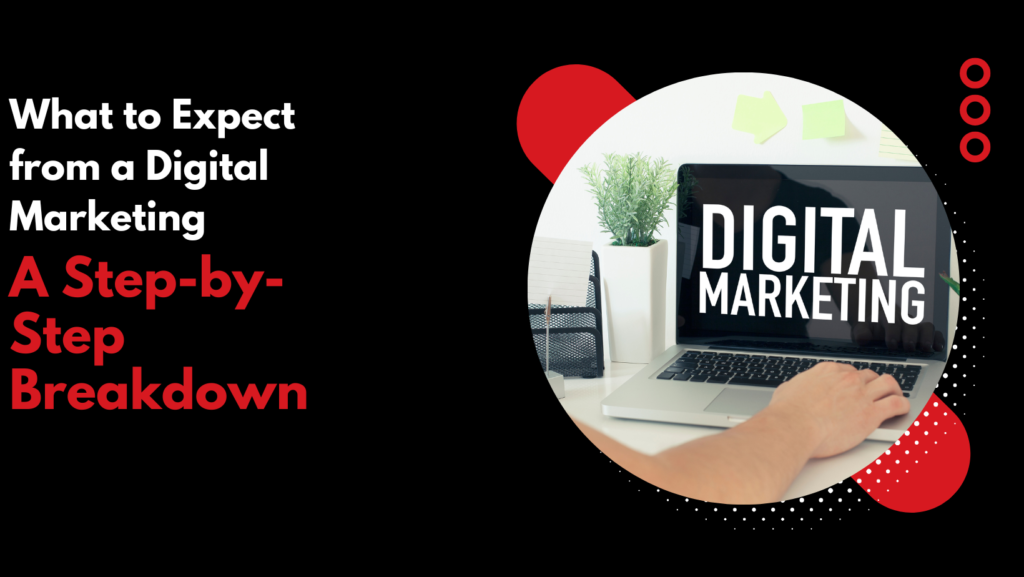In today’s digital age, personal branding has become more important than ever. Whether you are an entrepreneur, freelancer, or professional, having a strong online presence can set you apart from the competition. Digital marketing provides numerous opportunities to establish, grow, and maintain a personal brand. In this blog, we’ll discuss the key strategies for building a powerful personal brand through digital marketing.
What is Personal Branding?
Personal branding is the process of creating and promoting a unique professional identity that reflects your values, expertise, and personality. It’s about influencing how people perceive you online and offline. A strong personal brand can open doors to new opportunities, increase credibility, and build trust with your target audience.
Why is Personal Branding Important?
- Establishes Credibility and Authority: A well-crafted personal brand positions you as an expert in your field, making people trust your knowledge and opinions.
- Expands Your Network: When you have a solid personal brand, more people—potential clients, employers, or collaborators—will want to connect with you.
- Enhances Career and Business Opportunities: Whether you’re a job seeker, entrepreneur, or thought leader, a strong brand can attract exciting opportunities.
- Helps You Stand Out: In a competitive market, personal branding makes you memorable and differentiates you from others in your industry.
Steps to Build a Personal Brand Through Digital Marketing
1. Define Your Brand Identity
Before you start marketing yourself online, define your brand identity by answering these key questions:
- What are your core values and mission?
- What are your strengths and expertise?
- What makes you unique?
- Who is your target audience?
Your personal brand should be authentic, consistent, and aligned with your long-term goals.
2. Create a Strong Online Presence
Your online presence is the foundation of your personal brand. Here’s how to establish it:
a) Develop a Professional Website
A website serves as your digital resume and portfolio. It should include:
- An “About” page that tells your story.
- A blog where you share valuable insights.
- A contact page for networking opportunities.
b) Optimize Your Social Media Profiles
Your social media profiles are an essential part of your brand. Optimize them by:
- Using a professional profile picture.
- Writing a compelling bio that highlights your expertise.
- Sharing valuable content related to your industry.
- Engaging with your audience through comments and discussions.
3. Leverage Content Marketing
Content marketing helps establish your authority and keeps your audience engaged. Here’s how to use it effectively:
a) Blogging
Publishing high-quality blog posts on your website and platforms like Medium or LinkedIn can position you as an industry expert.
b) Video Content
Platforms like YouTube, Instagram Reels, and TikTok are great for sharing short-form and long-form video content that showcases your personality and expertise.
c) Podcasting
Starting a podcast or appearing on others’ podcasts can expand your reach and establish thought leadership.
4. Utilize SEO for Brand Visibility
Search engine optimization (SEO) helps your content rank higher on search engines, making it easier for people to find you. Here’s how to optimize your personal brand:
- Use relevant keywords in your blog posts and website content.
- Optimize your LinkedIn profile with industry-related keywords.
- Create high-quality backlinks by guest posting on reputable websites.
5. Build an Engaged Community
A strong personal brand is not just about self-promotion but also about building meaningful relationships. Engage with your audience through:
- Responding to comments and messages.
- Participating in online discussions and forums.
- Hosting live Q&A sessions and webinars.
6. Network with Industry Influencers
Connecting with industry influencers can enhance your brand’s credibility. Engage with them by:
- Commenting on their posts and sharing their content.
- Collaborating on projects, guest blogs, or podcasts.
- Attending industry events and networking online.
7. Use Email Marketing to Nurture Your Audience
Building an email list allows you to stay connected with your audience on a more personal level. Send:
- Weekly or monthly newsletters with valuable insights.
- Exclusive content or offers.
- Personalized messages to strengthen relationships.
8. Monitor and Improve Your Brand Performance
Track your personal brand’s growth by monitoring key metrics such as:
- Website traffic and search rankings.
- Social media engagement (likes, shares, comments).
- Email open and click-through rates.
Use analytics tools like Google Analytics, LinkedIn Analytics, and social media insights to measure your progress and refine your strategy.
Final Thoughts
Building a personal brand through digital marketing requires consistency, authenticity, and engagement. By defining your brand identity, creating valuable content, optimizing for search engines, and leveraging social media, you can establish yourself as an authority in your field. Keep evolving your strategy based on audience feedback and digital trends to ensure long-term success.
Start today—your personal brand is your most valuable asset in the digital world!

